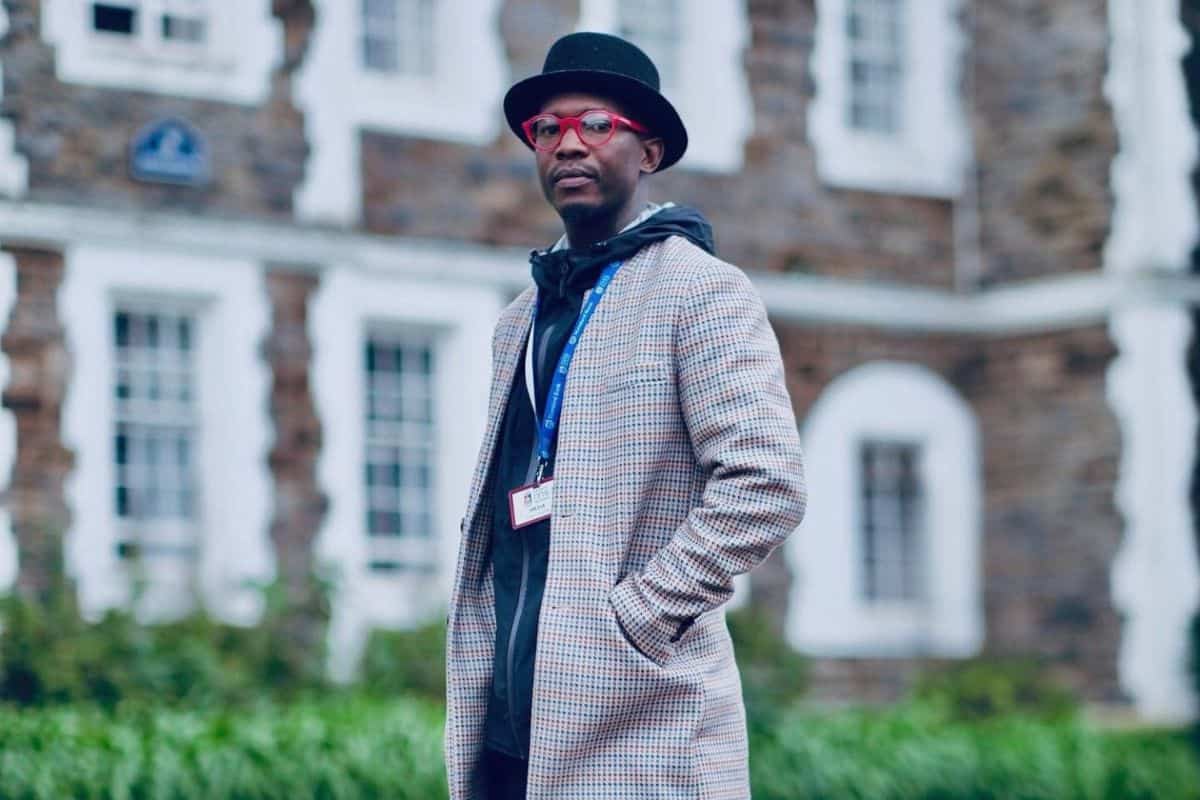Bhala made history as the first African solo photographer to exhibit at Dia.lo.gue Artspace in Jakarta, Indonesia.

People are born and people die with each passing day.
It’s easy to forget those who have passed away; however, through storytelling, their memories are kept alive for many years beyond the moment their spirit departs their bodies.
In honouring his late mother and brother, photographer Andile Bhala created an exhibition that pays homage to what they instilled in him, particularly his mother, for whom the exhibition is named.
“Naming the exhibition ‘Nthabiseng’ was my way of honouring my late mother and everything she poured into me,” Bhala tells The Citizen.
“The name itself, meaning ‘Make me happy’, carries the essence of who she was to me: a source of joy, wisdom, and grounding. Still, being my mama’s son is the biggest honour of my life.”
The exhibition features striking images that reflect Bhala’s journey in life and his career over the past decade.
ALSO READ: Andline Bhala on capturing the beautiful side of South Africa
Soweto to Jakarta
The photographer made history by being the first African solo photographer to show at Dia. lo. gue Artspace Jakarta, Indonesia.
“Thixo luthando [God is love] I can truly say it’s all by God’s grace. Being invited to exhibit at Dia.lo.gue Artspace in Jakarta was such an incredible opportunity to have people from another part of the world engaging with the part of the work I first developed in Cape Town during my residency at Dac on Dorp,” said Bhala.
The 38-year-old photographer says he realised that at the core, our stories as human beings are often the same or at least, deeply similar.
The experiences of everyday life, of love, loss, and memory, those things resonate everywhere.
“The reception in Jakarta was really moving. The turnout was amazing, and people took their time with the work, engaging thoughtfully,” he shares.
“What I love about photography is that it has its own universal language. You don’t need translation to feel something when you look at an image, it speaks to the heart. In Cape Town, I exhibited Inkumbulo, that also made it to the show in Jakarta,” expressed the lensman.
“South Africa has always received the work in a beautiful way. The audiences there engage deeply; they create conversations and reflect back their own meanings, and I think it’s those kinds of dialogues that really complete the work.”
Bhala says he’s in talks about taking Nthabiseng to other countries, following its incredible reception in Indonesia and across parts of Asia.
“While nothing is set in stone just yet, the energy is promising and kodwa ke [but then] only time will tell. If it is God’s will, these conversations will blossom into journeys that take the work to even more corners of the world very soon.”
The exhibition opened on 23 August and runs until 21 September.
ALSO READ: From Thokoza to Casablanca: How social art movement shared photography skills in Morocco
‘I see my mother again’
Bhala recently had a daughter named Balelihle and says there are days when he feels low and misses his mother.
“…and she walks into the room and in that moment, I see my mother again. The way she moves, the warmth in her eyes, it’s as if iOlady [my mother] lives on through her.”
He says that resemblance, that quiet but powerful presence, inspired him even more to create this show in his mother’s name.
He says Nthabiseng is not just a collection of photographs, but a way of showing gratitude to his mother.
He shares that his mother taught him Ubuntu- an African philosophy emphasising interconnectedness and community. This, he says, he incorporates in his photography.
“The way I photograph people with care, dignity, and presence comes from her. She taught me to see people fully, to understand that every face carries a story, a spirit, a purpose,” shares Bhala.
“Nthabiseng is about more than memory; it’s about presence. It’s about how, even in her absence, my mother is still leading me. She took me from where I was and placed me exactly where I needed to be. This exhibition is me walking in her footsteps, holding her teachings close, and continuing her legacy of love, joy, and humanity.”
The photos in the exhibition show people living life; whether it be a group of boys enjoying a game of football with the backdrop of a sunset in Soweto, or a lady carrying a child on her back while selling brooms stationed on her head, the photos depict life.
“Each photograph is part of a larger journey a project within a project where I explore and navigate the complexities of life. Themes of resilience, spirituality, hope, and the act of simply “keeping on” are woven throughout the work,” shares the former footballer.
He says that through these images, he is trying to find myself reflected in the people and spaces he has photographed.
“There’s a deep emotional connection in each frame, and the message is always the same: it speaks straight to the heart.”
ALSO READ: How theatre production is tackling child trafficking
Echoes of Soweto: Weaving Jazz and Stories
In conjunction with Bhala’s solo exhibition, the photographer also had a sit-down with Jakarta-born photographer Chris Bunjamin, where they discussed Bhala’s work, 𝘌𝘤𝘩𝘰𝘦𝘴 𝘰𝘧 𝘚𝘰𝘸𝘦𝘵𝘰: 𝘞𝘦𝘢𝘷𝘪𝘯𝘨 𝘑𝘢𝘻𝘻 𝘢𝘯𝘥 𝘚𝘵𝘰𝘳𝘪𝘦𝘴 𝘛𝘩𝘳𝘰𝘶𝘨𝘩 𝘚𝘰𝘶𝘯𝘥 𝘢𝘯𝘥 𝘗𝘪𝘤𝘵𝘶𝘳𝘦𝘴.
“Conversations through music are incredibly powerful some people see music as a love language, others as a conversation starter, and many as a tool for healing. The discussions flowed naturally, exploring how jazz speaks to our social, political, economic, and emotional realities.”
The discussions delved into Bhala’s jazz project titled Woza ngikuxoxele indaba, which has been shaped by iconic South African musicals and the sense of musical community he witnessed growing up, especially the music gatherings that happened at his grandparents’ shebeen.
“Visiting Chris’s home and exploring his collection reaffirmed how our love for jazz is deeply rooted in the stories shared by those who came before us.”
NOW READ: ‘Jazz is kind of the ultimate form of democracy’ – Benjamin Jephta






